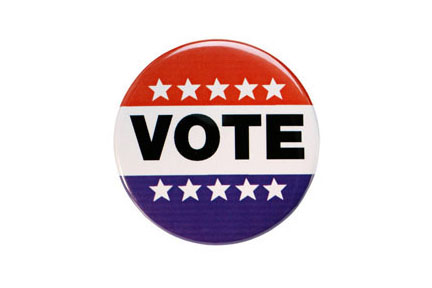Voters will decide on six state constitutional amendments during the Tuesday, Nov. 5 general election, with no shortage of hot-button issues on ballot. All require 60 percent approval to pass.
Amendment 1: Partisan Election of School Board Members — This proposed change would require school board members to be chosen in partisan elections rather than the current nonpartisan format. It would apply to general elections starting in November 2026, along with partisan primaries leading up to that year’s vote. The amendment was placed on the ballot by the Florida Legislature.
Florida has held nonpartisan school board elections since 2000 under a state constitutional amendment approved by voters. Before that, elections were partisan. This amendment would require candidates to identify as Republicans, Democrats, members of other parties or no party.
What people are debating: Whether it is good that candidates have to distinguish themselves by policy positions on school issues without reference to partisan politics, or if it helps the public to know them through a partisan context.
A YES vote means approving partisan school board elections.
A NO vote means keeping school board elections nonpartisan.
Amendment 2: Right to Fish and Hunt — This amendment aims to “preserve forever as a public right” the ability for Floridians to hunt, fish and take wild game. It specifies that the Florida Fish & Wildlife Conservation Commission retains powers such as regulating hunting and fishing seasons, bag limits, and license and permit procedures.
This amendment was placed on the ballot by the Florida Legislature and would take effect Jan. 1, 2025.
What people are debating: Whether this is necessary under current law and whether it harmonizes with or hampers conservation efforts.
A YES vote codifies this public right in the state constitution.
A NO vote keeps the status quo.
Amendment 3: Adult Personal Use of Marijuana — This amendment would allow adults to possess, purchase and use marijuana products for personal consumption, not just medical use.
People age 21 and older would be able to buy up to three ounces of marijuana and up to five grams in concentrates, for use by smoking or ingestion through edibles. It could be sold through marijuana dispensaries without a requirement for certified medical need, effective Jan. 1, 2025.
This amendment was proposed by Smart & Safe Florida, a group with ties to a medical marijuana distributor.
What people are debating: Whether this reduces criminal involvement with marijuana and regulates and taxes it, or if it increases risks for personal and public health and safety.
A YES vote means adults could legally buy marijuana for personal use.
A NO vote keeps recreational use illegal.
Amendment 4: Limit Government Interference with Abortion — This amendment would modify the state constitution to say, “No law shall prohibit, penalize, delay or restrict abortion before viability or when necessary to protect the patient’s health, as determined by the patient’s healthcare provider.”
The amendment acknowledges the state legislature’s authority to require notification to a parent or guardian before a minor has an abortion. It was placed on the ballot by Floridians Protecting Freedom Inc., a group contesting the state’s new abortion restrictions.
Voting on this amendment is likely to receive the most national attention of the six. It would effectively overturn a state law that took effect in May 2024 that limits abortion to the first six weeks of gestation, with certain exceptions for rape, incest, human trafficking and life-threatening conditions.
What people are debating: Whether Florida’s law represents appropriate government action or overreach that interferes in private medical matters.
A YES vote would make abortion legal until fetal viability, or to protect the health of the mother as determined by a healthcare provider.
A NO vote leaves abortions generally illegal in Florida after six weeks.
Amendment 5: Annual Adjustments to the Value of Certain Homestead Exemptions — Tax breaks known as homestead exemptions for a primary residence would be adjusted upward for inflation under this amendment. A $25,000 base exemption would be increased by the amount of inflation, as determined by an official government formula, in the following year.
This affects local property taxes other than levies for school districts. The change could cost local governments more than $100 million a year by 2029, while allowing Florida homeowners to save that much in taxes, according to a state legislative staff analysis. This amendment was placed on the ballot by the Florida Legislature.
What people are debating: Whether an enhanced tax break for homeowners is worth whatever it takes away from local government budgets.
A YES vote means increasing homestead tax exemptions annually for inflation.
A NO vote means keep the current system.
Amendment 6: Repeal of Public Campaign Financing Requirement — This amendment seeks to repeal a provision in the state constitution that requires public financing for certain candidates for statewide office who agree to campaign spending limits.
These offices include the governor and elected cabinet officers, who can receive matching funds on personal contributions, though not on corporate or political action committee giving. Florida spent more than $13 million on such matching funds in 2022, according to an analysis by state legislative staff.
Candidate spending limits vary by office and are determined by a formula that provides matching dollars per registered voter in the state.
The Florida Legislature sponsored this amendment. A similar repeal effort failed about 15 years ago, garnering a little more than 52 percent of the vote of the 60 required.
What people are debating: Whether it is a good idea to use Florida taxpayer funds to support candidates based on their contributions from individuals versus corporate or PAC giving, subject to spending limits.
A YES vote means the public funding for candidates ends, affecting state budgets by the 2028-29 fiscal year.
A NO vote means public matching funds will continue for certain statewide candidates.








